
History
Studium Generale began inofficial activity on 3 December 1991. The official activity was set up in early February 1993, based on a resolution of the Senate of the University of Wrocław. Between 1991 and 1999 eight volumes of seminar materials were published. We treat these years as the first period of activity of Studium Generale.
The first main goal of the first period of activity was to present the application of symmetry theory (group theory) and systems theory in the natural sciences and humanities as accessible and multifaceted as possible.

The academic year of 2003/2004 stated the beginning of the second period of Studium Generale. The common goal of the first and second periods was diverse and possibly the most interdisciplinary reflection on the truth, cognition, beauty, and art. In the second period came significant changes in the way of leading seminars. Thematic and methodological orientations have also undergone certain changes.
New thematic emphases consisted mostly of presenting diverse usages of fractal theory, self-organisation, and deterministic chaos. These usages included selected branches of natural sciences and humanities. The new methodological tool was the didactically simplified theory of nonlinear dynamical systems, emphasizing its qualitative methods.
One of the aims of the second period of activity of Studium Generale was to introduce the participants to Prigogine’s, Eigen’s, and Schuster’s theories. The next goal (realised in the second half of the academic year 2004/2005) was to recount the important and graspable relationships between symmetries, fractals, and chaos.
The meetings of Studium were attended by employees of all higher education institutions in Wrocław (University, University of Science and Technology, Academy of Music, Academy of Art, Academy of Medicine, Agricultural Academy, Pontifical Theological Faculty, Academy of Economics, and Academy of Physical Education) as well as by employees of University of Opole, Academy of Art in Poznań, and Academy of Art in Gdańsk.
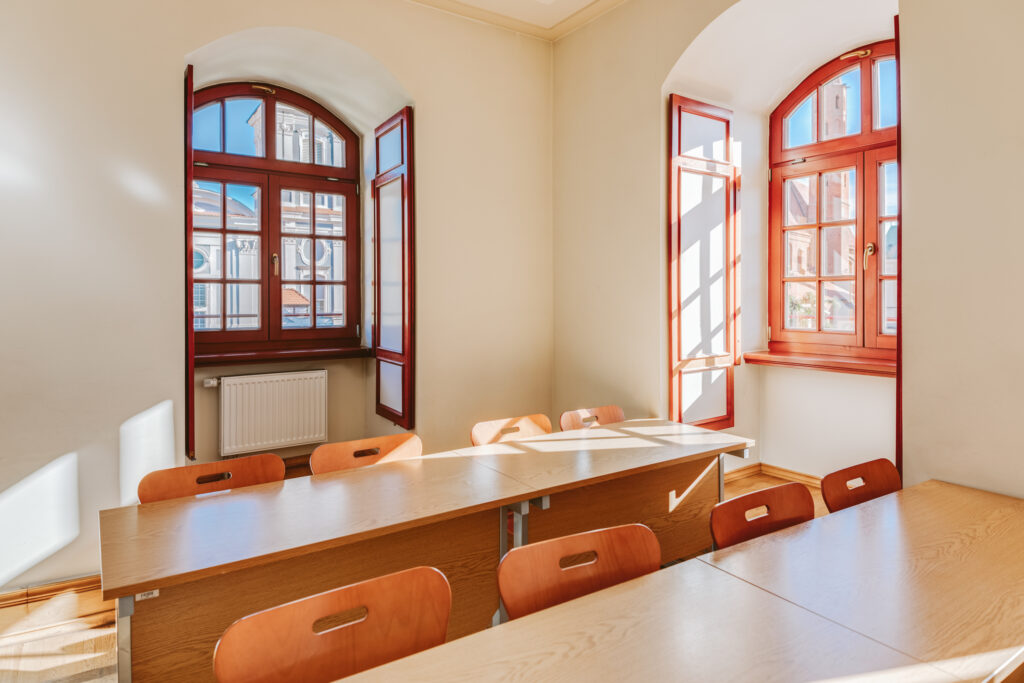
Jan Mozrzymas
prof. Janina Gajda-Krynicka, Studium Generale Universitatis Wratislaviensis
Since the 12th century, the name “Studium Generale” has been closely associated with a new school type emerging at that time in Europe. Surprisingly, higher education school learning was fully institutionalised for the first time in the history of European culture. Moreover, this form of learning was available for all who wished to study and, after obtaining the appropriate degree, teach others. The 12th century was a time when the first universities were arising in Europe and their form and structure of basic arrangement remained unchanged to this day. (…)
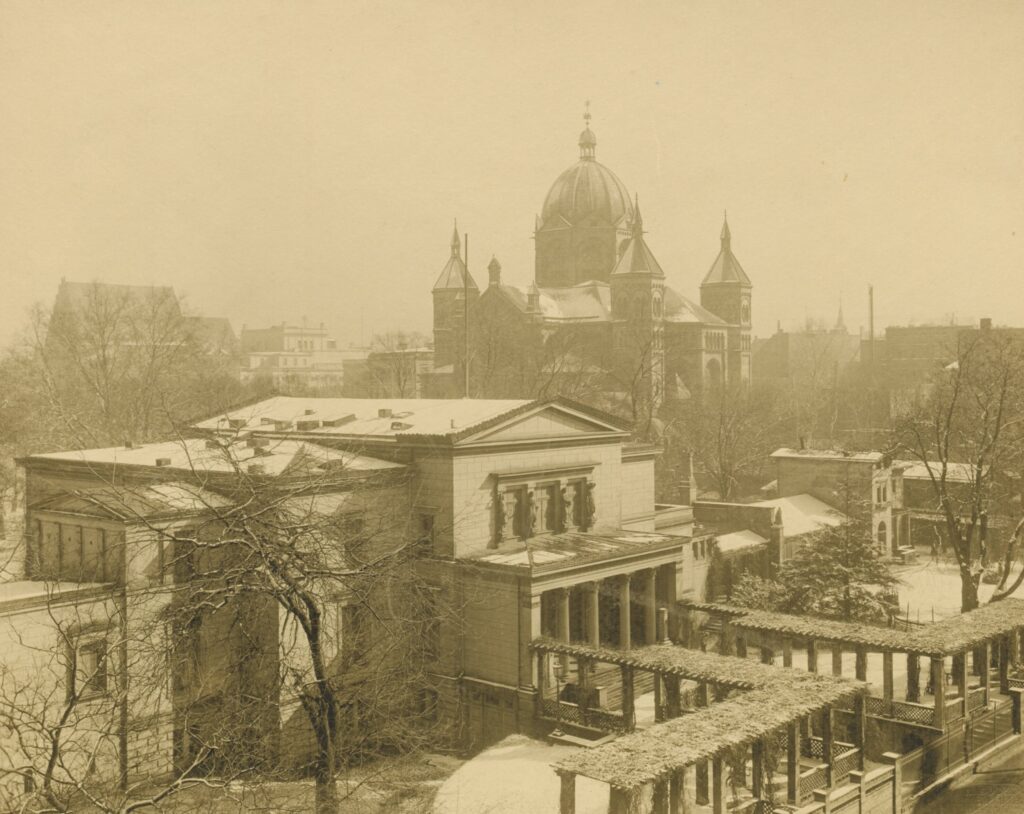
The fundamental question of science was already formulated twenty-five centuries ago by Aristoteles. His definition of knowledge stated that its objects are the first principles and causes of the entire reality. The question about the first principles and causes has been present in every period and is present to this day. The first principles and causes include; the beginning of the world, its substance, the laws governing it, whether the world is an order or chaos, whether it is a proper structure or a system governed by definite and definable laws, articulated explicitly by philosophy. The answers were formulated at every stage of the development of science, then negated or verified by further stages. They have been and still are the driving force of knowledge. Although in modern science, which is so institutionalised and atomised, it would be in vain to look for a discipline that would take it upon itself to formulate the initial axiom. For many centuries this role was assigned to philosophers. However, the philosophers (apart from extreme dogmatists) now have to admit that they lost this predisposition a long time ago regardless of their philosophical creed.

This task, therefore, must be undertaken by a community of scholars, convinced of its fundamental and essential importance. The axiom cannot be formed by categorical and authoritarian statements, supported only by the conviction of the superiority of one discipline over others, nor can it be formed as a result of intuition or chance. It can be only formed, or rather we can only attempt to do so, using the inductive method, somewhat summing the results of all existing specific disciplines, while without excluding the possibility that the axioms may never be definitely formed as a reliable and unquestionable rule. The attempts to form the axiom must have a starting point, if only an outlined concrete idea, that must be accepted as an object of research by numerous and varied disciplines of science. And finally, such an idea must be articulated by someone explicitly, and in such a way that the scientific community would become interested in it. It has to attract the attention of representatives of various disciplines and encourage them to research and test it.

All these conditions were fulfilled in 1987 when professor Jan Mozrzymas presented his series of lectures on symmetry at the, then, Institute of the History of Philosophy of the University of Wrocław. Two theses emerged from these lectures. Firstly, the idea of symmetry can become both a source and a method of the interdisciplinary search for the unity of nature. Secondly, symmetry, understood as a specific form of transitions within every structure, played a decisive role in the process of the directed evolution of the Universe, which had its beginning in the Big Bang.
In 1987, professor Jan Mozrzymas lit a fuse, and not only within the philosophical community. They inspired many meetings and discussions, initially of a private nature, which attracted more and more participants from various scientific circles and different Wrocław universities. Numerous questions and problems arose during these meetings and ways and methods of solving them. They led to the unanimous acceptance of the thesis by the, still informal, group of people gathered around the professor that the theory of symmetry could be a research tool in the search for the unity of the world, both in its natural aspect and in its humanistic aspect. It also covers the areas of specifically human activity, including art. Thus, the starting point of the research was established. It was oriented towards a view of the world ordered according to the criterion of symmetry, leading to studying and understanding it. We may risk a statement that for this group of researchers the theory of symmetry opened a new window to the world, or at least to that part of reality which each of its members dealt with, indicating its particular place in the whole of the cosmos.
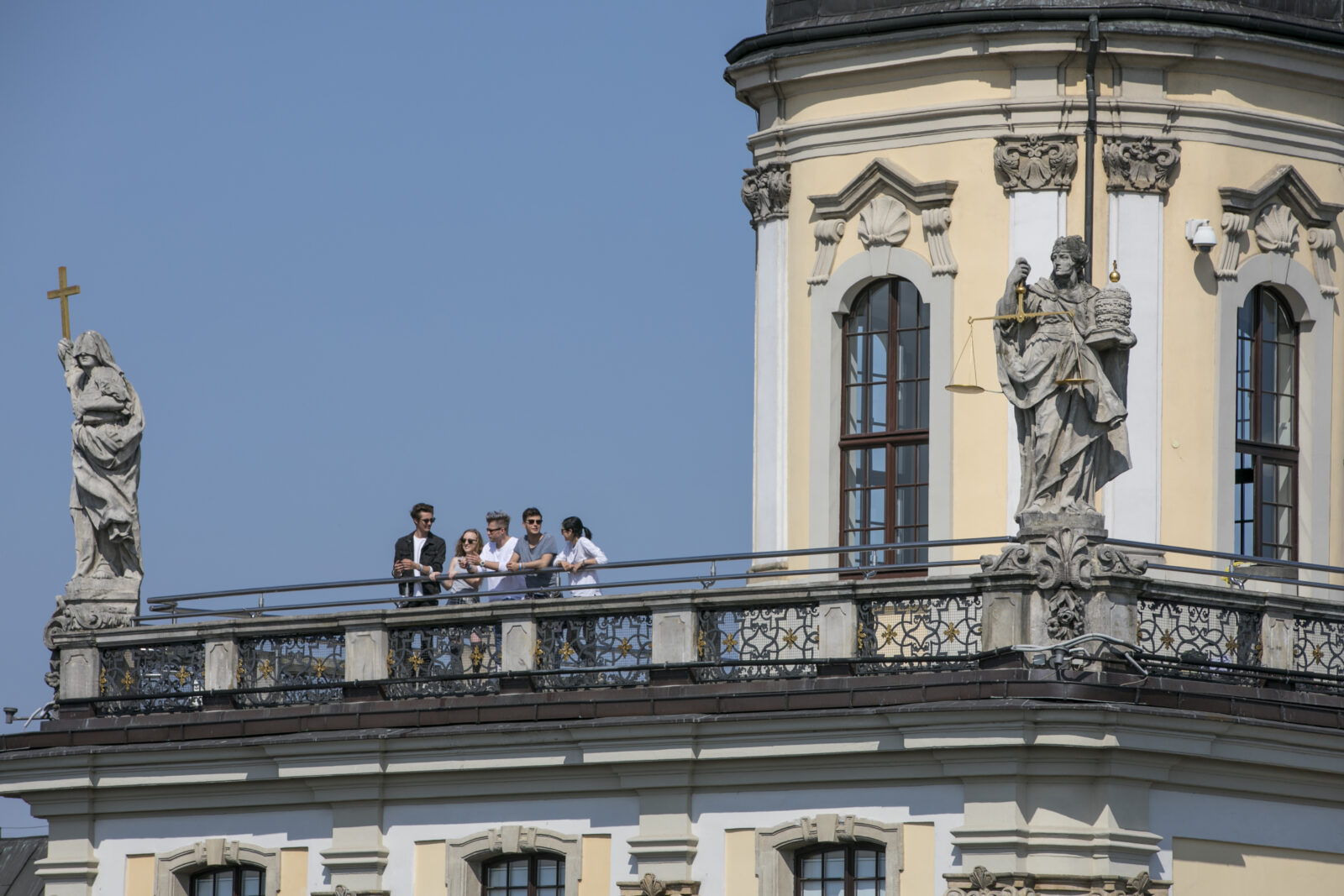
On 3 December 1991, the activities of that informal group became institutionalised: on that day, on the initiative of professor Warmus, with the support of the university authorities and the Foundation for the University of Wrocław, two interdisciplinary seminars were initiated: Symmetry and Biological Systems and Symmetry and Evolution of the Universe. Both of these seminars reminded closely connected, although it has to be stressed that the leading role was played by the second seminar, which was based on seven seminars by professor Mozrzymas and his book “Ewolucja idei symetrii” from 1992. The seminar on symmetry and biological systems presented the results of research carried out by mathematicians, physicists, biologists, chemists, biochemists, and anthropologists from a new point of view, as it was determined by the theory of symmetry. Further seminar, activated on 18 February 1992, was devoted to symmetry in art and humanities. It brought together researchers who treated the theory of symmetry as a tool for organizing the results of scientific research to date.
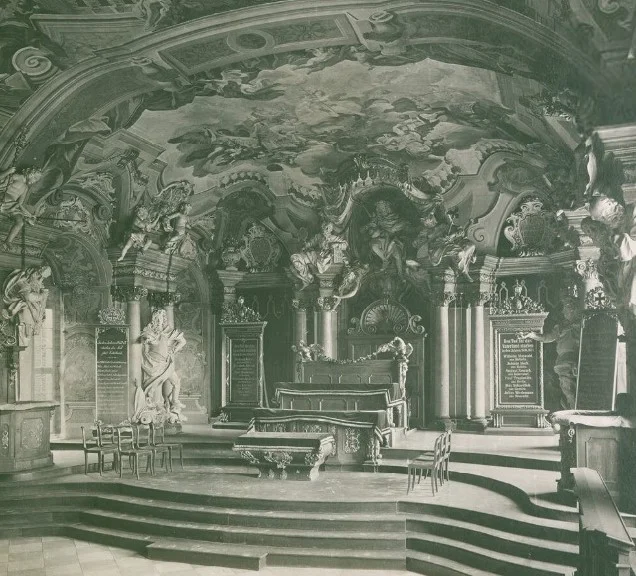
The seminar classes – lectures and discussions – focused on presenting a particular scientific discipline and showing the functioning of symmetry in a particular area of reality. These areas were: the ontic rationality of nature, the processes of thinking, society, the history of human thought and the history of ideas, the sphere of broadly defined culture, music, painting, sculpture, and architecture.
In this brief history of the Studium Generale, the role played by these interdisciplinary seminars, which preceded its official establishment, cannot be overlooked. Their importance can be presented in the following aspects. Primarily, they have shown that in the diversity of the world’s phenomena, it is possible to look for a common denominator in a scientific and documented way, based on the results of empirical research confirming scientific intuitions. It has been shown not only to a relatively narrow group of researchers presenting their findings but also to the wide range of listeners and participants from different backgrounds, who joined the seminar discussions more and more actively. Moreover, the seminars explained the necessity of striving to formulate an argument of ultimate justification in science and overcome its atomisation. The discovery of symmetry in various aspects of the world and reality, with the help of so different research tools, has shown that it is possible to think, with the necessary caution, about some unity, order, and balance in the world. Although their precise and final definition still requires long and arduous work. Eventually, these seminars created, to some extent, Wrocław’s interdisciplinary community. They brought together the employees of nearly all universities in Wrocław: University, University of Science and Technology, Academy of Music. The seminars reached their propadeutic role, apart from many others, for interdisciplinary knowledge, beyond strictly selected research specializations. Then the time came for research that was more closely focused on the idea of symmetry as such. The program of the seminars was a result of lengthy discussions in the already formed interdisciplinary community. The discussions resulted in extending the research on the symmetry of the theory of symmetry.
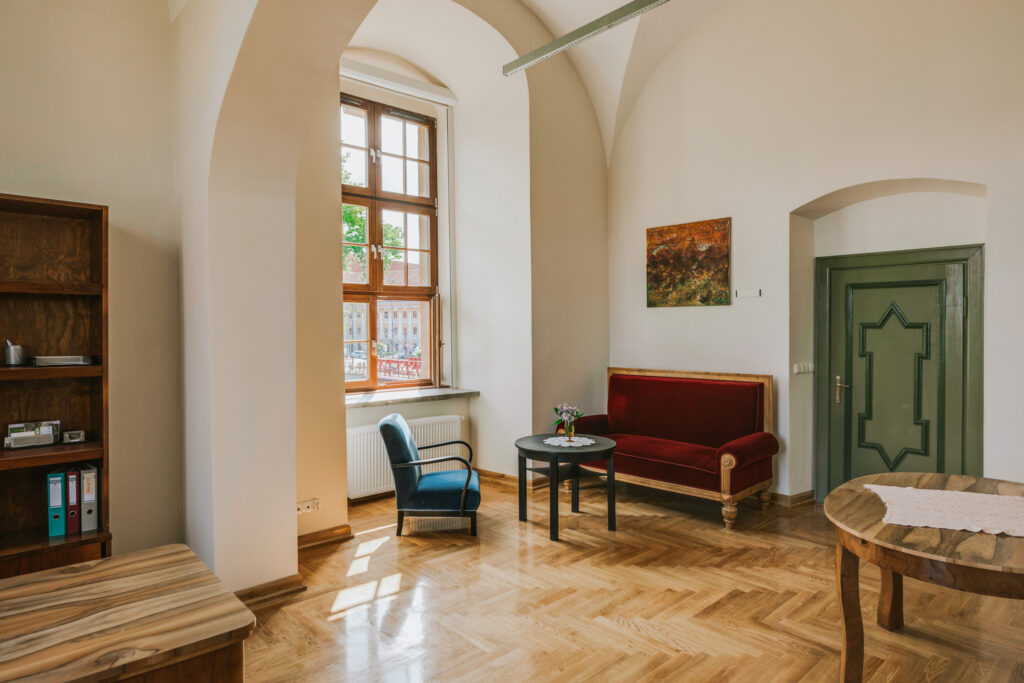
This research was implemented as part of the new form of organization – on 17 February 1993, the Senate of the University of Wrocław officially established a new form of interdisciplinary studies and called it Studium Generale. He said that the name referred in the meaning and connotations to the first organised and institutionalised forms of practicing science and education. From this day, Studium operated under the supervision and direction, both formal and substantial, of professor Jan Mozrzymas, who was the founder and organizer of the Studium Generale.

Studium Generale – which was already an institution – has pursued (and continues to do so) various forms of activity. Of course, the basic and most important one is to continue the interdisciplinary seminars. One of them, Symmetries in Nature, Art, and the Humanities, continued research on symmetry. The other was devoted to systems theory in nature, the arts, and the humanities. This seminar’s program was divided into two stages. The first stage was carried out in the summer semester of the academic year 1992/93 and had a precise goal: to check whether systems theory passes the test in modern times, on the threshold of the 21st century, both in the area of natural sciences and in broadly understood social sciences: in philosophy, sociology, political and cultural sciences. That is why a specific order of lectures and discussions was adopted at the seminar: from strictly methodological papers showing various explications of the notion of a system and forms of its formalization, through showing the functioning of systems theory in particular disciplines: biology, sociology, culture, philosophy, political science, to presenting the application of the systems theory in solving specific and very concrete problems. Great pleasure brings the fact that young people, who had only just taken their first steps in the academic path, actively participated in the seminar operations. The substantive result of this seminar was: a certain summary of the state of research on systems theory in the social sciences, an indication of its achievements and shortcomings, and the formulation of the specific directives for further research. The second stage of the systems theory research consisted of the problem about the relation between the systems and the evolution. It has been carried out in various forms to this day. At this stage, the employees of University of Science and Technology took an active part in the research, as well as foreign guests.

Apart from scientific seminars, the Studium Generale has developed other forms of activity. These include interdisciplinary readings of lectures and panel discussions, often combined with book promotions. The reading of “Harmony of the Celestial Spheres and the Music of Abstract Symmetries” by prof. Jan Mozrzymas and dr Andrzej Wolański was particularly memorable. Another memorable reading – “Culture as an Open System” – was presented by professor Michael Fleischer of Bochum University. The discussion of the book “The philosophical background of the schism of Christianity” by professor Andrzej Siemianowski also attracted a large audience. One of its participants stated that the discussion even turned into an ecumenical session. In the last months of the last academic year, representatives of the Wrocław Medical Academy – Department of Cardiology and Department of Pathophysiology – joined Studium Generale and delivered a series of lectures dedicated to cardiovascular diseases and genetic issues.

Publications have been a separate form of activity of the participants of the seminars and discussions, although related to the main activity of Studium Generale. The lectures and papers delivered during the seminars are and will be published in the future in individual volumes. The publications are supervised by the Editorial Committee.
However, the greatest merit of the Studium Generale is that it has managed to inspire a wide circle of researchers to integrate the sciences and put continuous effort to harmonise knowledge and promote this idea as widely as possible. The research endeavors of those who have put their hearts and minds into the theory of symmetry are characterised by great caution and research reliability. Without these traits, the attempts at integrating the sciences would confuse concepts and methods.
Although the Studium Generale has become an institution of sorts, it has not lost its original school character, forever linked to its founder, professor Jan Mozrzymas. He was the first to formulate the initial foundations of the axiom and research paradigm. He established the initial research directions and organizational forms for the activities of the Studium, and to his efforts and work the Studium owes its official status. However, what needs to be particularly emphasized is his personality, including charisma, which is characteristic of the founders of schools and necessary for them to function correctly. It attracted people irresistibly and they, thanks to the professor, have found a common language that enables effective communication between chemists and philosophers, political scientists and musicians. This language breaks down the barriers separating the narrow specializations of scientific disciplines.

Studium Generale is a school in the oldest and most essential sense of this term – it is professor Mozrzymas’ school. An obvious example of this interdisciplinary communication capacity was the Scientific Council of the Studium, gathered around professor Mozrzymas. At the same time, the Council constituted the Editorial Committee of the volumes in which his lectures and readings are published to this day. What makes the Council a perfect example of this communication is that it includes representatives of completely different scientific disciplines: physics, biology, chemistry, cultural sciences, and philosophy. It is admirable that they can find a common language in more cases than matters regarding work and ones that are related to a particular seminar or publication. This is because a certain tradition of the so-called working meetings has already been established. After discussing current issues, one talks about the latest scientific concepts related to the symmetry or systems theory, about books or journals. Those were discussed informally, and these discussions were leaving their mark, in various ways. The conclusions of the discussions were transferred to other scientific circles and often implied new research problems and the projects of the solutions.

There were two main characteristics of these discussions. On the one hand, there were tolerance and patience of the so-called specialists of a specific field towards representatives of other sciences. On the other hand, there was the profound conviction that all research disciplines are paths, different though they may be, leading to the same goal. These two sides seemed to balance each other.
So far, the activity of Studium Generale has concentrated around several research problems in their interdisciplinary aspect. As indicated above, “in the beginning there was symmetry”, which has always remained a reference point, both as a research tool and as a research target, even though subsequent problems, undertaken by the participants of the Studium, such as the theory of evolution or the systems theory, have been the subject of research and reflection of representatives of both the sciences and the humanities, as well as creative communities. The following years of Studium Generale, beginning in the academic year of 2003/2004, brought some changes in both, substantive and practical aspects. On the initiative of professor Jan Mozrzymas, the form of the lectures changed. Before the lectures were delivered, their authors prepared a kind of summary of the most important conclusions, which at the same time initiated and organised the discussions. In the form of three questions, these summaries were available for the students in advance, in the lecture programs prepared for a semester. Moreover, each lecture was accompanied by an introduction to the discussion prepared by invited persons, usually indicated by the author. In the volumes that are published each year, each paper is accompanied by this introduction, and that has significantly enhanced the content of the publication. In the substantive area, new research problems have been taken up that focus on various applications of fractal theory, self-organization, and deterministic chaos in the selected disciplines of natural sciences and humanities.

In 2006 Studium Generale faced a challenge. Its founder and creator, the master of sui generis school, the one who introduced the concept of multidimensional interdisciplinary research to the Polish scientific community – professor Jan Mozrzymas – passed away. He was irreplaceable. Nevertheless, the Scientific Council of the Studium, at the initiative and with the great support of professor Mozrzymas’s family – prof. Ewa Dobierzewska– Mozrzymas, prof. Jerzy Mozrzymas, and dr Marek Mozrzymas – has made an attempt to measure to the challenge and continue professor Mozrzymas’s work. Apart from the professor’s family, the greatest merit in the continuation of the Studium Generale should be attributed to professor Adam Jezierski. Thanks to joint efforts, the Studium Generale is proud to cooperate with many outstanding scholars from the environment of almost all universities in Wrocław, such as Rector prof. Tadeusz Luty, Rector prof. Tadeusz Zipser, Rector prof. Wojciech Wrzesiński, Rector prof. Zdzisław Latajka, Rector prof. Roman Duda, as well as those from outside of Wrocław, such as the Rector of Bochum University, prof. Knut Ibsen, prof. Waldemar Kozuschek, prof. Henryk Samsonowicz, prof. Jerzy Vetulani, Rev. prof. Michał Heller, prof. Małgorzata Kossut, prof. Maciej Żylicz, prof. Leszek Kaczmarek, and many others. Prof. Jezierski took over the leadership of the weekly meetings and moderating the discussions.

Studium Generale also owes much to the Rector of the University of Wrocław, prof. Leszek Pacholski, who makes the yearly publication of papers possible and helps with receiving guests from outside of Wrocław. The editor of the Studium Generale series, appointed by the Senate of the University of Wrocław, is prof. Janina Gajda-Krynicka. The task of publishing the lectures of the Study was taken on by prof. Ewa Dobierzewska-Mozrzymas, prof. Janina Gajda-Krynicka, and prof. Adam Jezierski.
Since the academic year 2005/2006, the lectures delivered during the meetings of Studium Generale have been realising the idea of interdisciplinarity that underlies the very institution of seminars, regardless of the scientific discipline they could be assigned to. They can be ascribed to certain meta disciplines – cognition, science, beauty. There is a deeper order in this system. There must be a specific research method, regardless of what is the object and field of research. The results of this research are objectified in the sciences. If, on the other hand, we go beyond the pragmatic aspect of all sciences, regardless of whether they are humanities generally called natural sciences, they will reveal to us the beauty, whether explicit or hidden, but always present in the perfect structure of the cosmos, perceived invariably by representatives of the sciences, the humanities and by artists. Such an order was presented in Volume XI of the materials from the meetings of the Studium Generale. In the next volume, the order of meta disciplines was adopted in the following way: nature, art, human. However, the new order does not deviate from the idea of interdisciplinarity. The idea manifests itself in seemingly different notions and language that are objectified in different categories. However, it is manifested also in many compatible and translatable perceptions and studies of the nature of reality, both in its macrocosmic and microcosmic aspects. The nature of reality, as a subject of multidirectional and multidisciplinary research, inspires a field of human activity, nowadays called art. In the nature of reality, the human appears as a part of it but also as a cognitive subject. Therefore, it is to be hoped that professor Mozrzymas’ school will continue beside his message.
Translated by Magdalena Mróz (student of English Studies at the University of Wrocław) as part of the translation practice.



